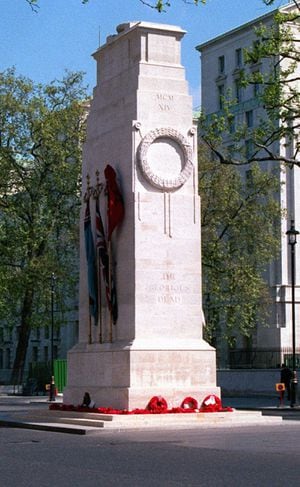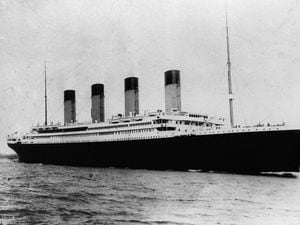Peter Rhodes on the desecration of a national symbol, a shortage of logic and a tradition of chucking things in the river
Read the latest column from Peter Rhodes.

History repeats itself. The statue of the slave trader Edward Colston in Bristol was not the first unpopular edifice to be dumped in a river and probably won't be the last.
In February 1919 a German howitzer was presented to the town of Stratford-upon-Avon as a war trophy. But the town didn't want it. For ex-soldiers, it was a reminder of horrors they would sooner forget. So four months later, as the peace treaty was being signed in Versailles, a group of men dragged the howitzer through Stratford and, to great applause, dumped it in the River Avon.
But while some symbols of war may be despised, others are cherished as national treasures. How many more times must our beloved Cenotaph in Whitehall be daubed with paint by idiots and vandals? There is no surer way to alienate most British people than to defile this symbol of sacrifice and yet it happens time and again. People capable of such desecration really don't care about anybody except themselves.
Black lives matter. Of course they do. But what a shame that so many black people don't seem to share that view. The casual stabbing and shooting by gang members, especially in London, is a grotesque national tragedy. And while police brutality and institutionalised racism must be condemned and stamped out, the fact is that the greatest lethal threat to a young black man growing up in the capital is not a police officer but another young black man.
If you are baffled by the logic of a crowd claiming to defend ethnic minorities while risking spreading a virus that rips like wildfire through ethnic minorities, you are not alone. But then logic was an early casualty of this pandemic. Take the alleged row between a scientist and a politician. Prof John Edmunds says he wishes the UK had gone into lockdown sooner as the delay "cost a lot of lives". But Prof Edmunds said data available in March was "really quite poor", making it "very hard" to do so. Health Secretary Matt Hancock says the government "took the right decisions at the right time". Clearly, what both men wish now is not what they wished back then. What they are actually saying is this. Edmunds: “I wish I'd had a crystal ball.” Hancock: “I wish I'd had a crystal ball, too.”
Incidentally, if the young people taking part in the Black Lives Matter demos felt emboldened because they are unlikely to suffer with Covid-19, they should think again. The Spanish Flu pandemic which began in 1918 came in three waves. It preyed chiefly on young adults in seemingly good health and the second wave was catastrophic. The old and the very young survived but people in the age profile of London's weekend demonstrators perished like flies. A warning from history.
Confusing headlines of our time: “British man rescued after six days trapped in Bali well.” A reader says: “You'd think he'd have been quite poorly.”





